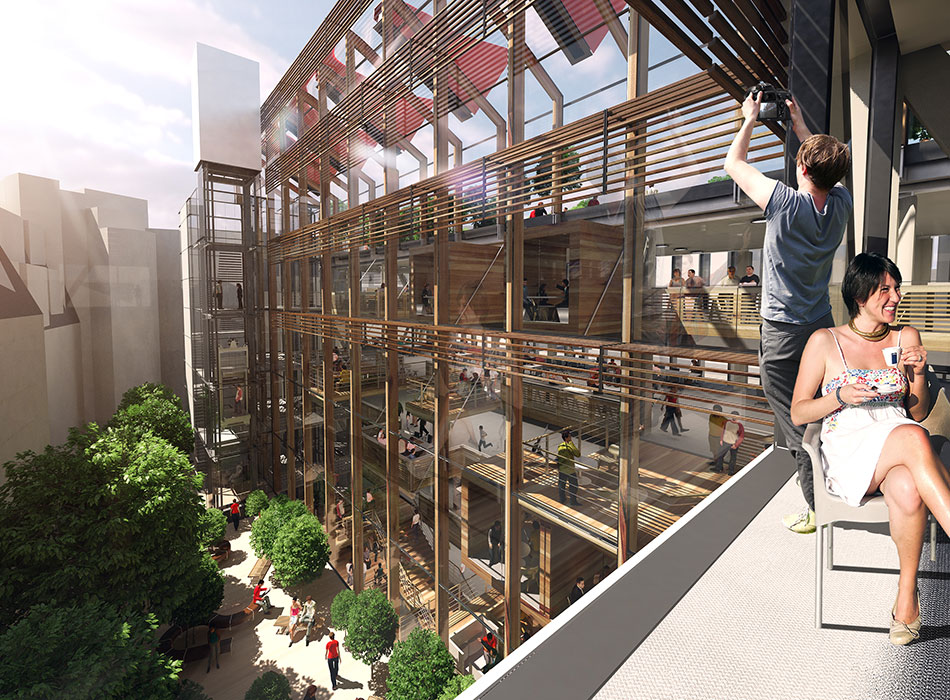Rogers Stirk Harbour + Partners were selected as the winnner to design LSE's new £90m Global Centre for Social Sciences.
They were selected as the winner from five architect teams shortlisted via an architectural competition organised by LSE with the RIBA (Royal Institute of British Architects). The teams were:
- Grafton Architects, Ireland
- Heneghan Peng, Ireland
- Hopkins Architects, UK
- OMA, The Netherlands
- Rogers Stirk Harbour + Partners, UK
Professor Craig Calhoun, Director of the LSE, chaired the Jury Panel which made the final decision after presentations from the five shortlisted teams. He commented:
“From an extremely strong field of submissions, LSE has chosen Rogers Stirk Harbour + Partners to create a new structure at the heart of our campus. They have designed beautiful, dynamic buildings around the world and they offered an elegant, thoughtful submission to this competition. RSHP grasped that this would be a building at once for the university and for the city, an enhancement to public as well as academic space. My colleagues and I are delighted that the RSHP team will now work with us to complete the design and add to the excitement of our terrific London location.”
Director of Estates and Jury Panel Member Julian Robinson said:
“Each of the five proposals gave us pause for thought with innovative design responses. We intend this to be a seminal piece of university architecture so it was important we took time to get the decision right. The RSHP proposal goes beyond the School’s brief by giving us a new public square in the heart of the campus. We are looking forward to developing the designs with the RSHP team and are confident that the result will produce a highly sustainable and outstanding piece of architecture.”
Ivan Harbour, Senior Partner leading the project at Rogers Stirk Harbour + Partners, said
"We are excited to be working with the LSE and we look forward to an open dialogue with the school, so that together we can create the best environment possible for the university and its students. Our new addition to the campus will enrich the urban context and reflect the essence of the LSE."
As part of the decision making process, a public exhibition was held where LSE staff, students and visitors were able to vote for their favourite design from the shortlist. This vote was taken into consideration by the School's jury panel when they met. Rogers Stirk Harbour + Partners won the public vote by an overwhelming margin.
"The LSE has completed two RIBA architectural competitions since 2009. The true power of a design competition is that it allows creative freedom in response to a brief. The benefit to the LSE is that the process is organised by the recognised architectural body and they administer the whole process. It is also completely open and transparent. By using the RIBA it allows us to reach a wider pool of architects within the UK and internationally which we feel is important and aligns with our international staff and student profile. Our first RIBA competition project, the Saw Swee Hock Students Centre is currently shortlisted for the RIBA Stirling Prize and had we not followed the invited completion process we would not have naturally selected O'Donnell Tuomey Architects onto the shortlist."
"We believe the process allows the wider architect practices to put themselves forward for consideration where they may not normally have that opportunity. The competition process enables architects to reconsider the potential of each site and can sometimes come up with ideas the client organisation haven't even considered. The LSE are committed to the design competition process and it will be the cornerstone of future major developments" Kenneth Kinsella, Director of Capital Development, Estates Division, London School of Economics and Political Sciences







